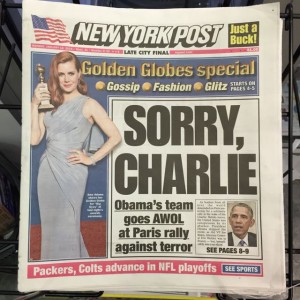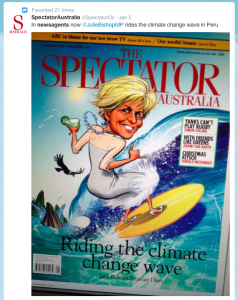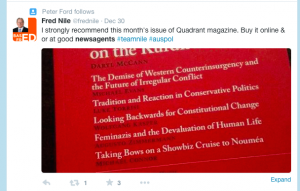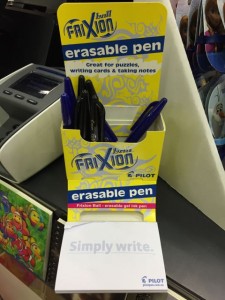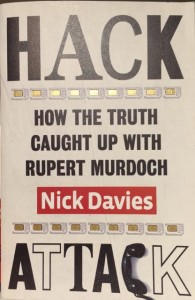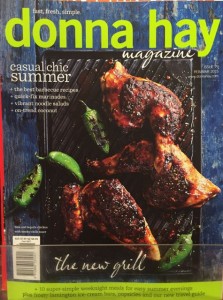Australian retail newsagents is a direct account with magazine distributors make 25% of the cover price of a magazine.
Distribution newsagents make 25% and have to share that with retailers they supply. The share they make can range from 12.5% to as high as 5% depending on terms negotiated.
Newsagents want more than 25%.
While some cover prices have increased, overall they have not kept up with CPI – meaning in real terms our gross profit is lower today than last year and prior.
The gross profit from magazines has not kept pace with the increases in rent, labour and other business costs. Rent increases at least 5% a year and labour closer to 4%.
The freight cost of handling returns has also increased.
Many newsagents say that while magazine sales have been declining on average by 8% year on year for the last three years, their magazine bill remains the same. The reality of the sales decline should be that magazine supply bills decline. That they are not declining in line with the decline in circulation speaks to the unfairness of the magazine supply model to newsagents.
Distributors would say that newsagents knowingly signed their contracts. Fair enough – but since then they have started supplying new channels and they have changed how they deal with other retailers that benefits other channels and disadvantages newsagents.
Magazine publishers would say that they have no financial capacity to pay newsagents more. To those who supply supermarkets I’d say you do have capacity given rack fees, promotion fees, zero returns and other costs of handling the supermarket channel. To those not in supermarkets, I’d say our channel offers the most cost effective way of reaching new eyeballs even if you were paying us 40% of retail sales.
Paying newsagents more could open up more certainty around shelf life, in-store promotion and overall shop floor engagement. It stands to reason … let’s say I have two product categories generating roughly the same in revenue but one delivers 25% gross profit and the other delivers 55% gross profit, both have similar space requirements and similar labour requirements. High will I focus on? 55% GP of course.
Magazine publishers should embrace our channel, give us a better margin, eliminate the need to return unsold stock and free us from the restrictions of the current supply model. Do this and entrepreneurial newsagents would emerge with a focus on magazines. I suspect they would drive sales increases.
Magazine publishers who want newsagents to be more commercial with their products need to treat us more commercially. This is what it comes down to.
Magazine Publishers Australia has been working on a code of conduct which they think will make newsagents happy – I have written about it here and I have written about it here. If you compare this code of conduct to my suggested magazine supply KPIs you will see the MPA draft is biased to serve the publisher whereas mine is biased to serve the newsagent. I think the MPA code needs some more work but it is a start. For example, the financial viability of a title in a newsagency has nothing to do with the size of the print run … the ideal sales efficiency has nothing to do with the size of a print run.
I’d also note: early returns are essential to cash-flow management in newsagencies. If Network and Gotch want to be paid they must allow early returns. If a title has not sold in two weeks it ought to be a reasonable candidate for early return.
The challenge for newsagents is what to do about magazines. If you decline your range too low you stop being a destination for the shopper who likes to browse and this could have a knock-on effect for other parts of your business, you stop being a newsagent. You would need to be bringing traffic in for other reasons.
Take a look at stand-alone businesses around you like gift shops, toy shops, stationery shops and card shops. They struggle with this single category attracting traffic. One thing that works for newsagents is the multiple reasons people come through our door.
Our businesses are very layered with different departments relying on each other for support. This is why cutting magazines too far is a serious danger for us. Magazine publishers and distributors know this and I suspect that is one reason they have not moved on offering fair compensation for our services.
The magazine supply model which makes newsagents the least competitive of all channels and the compensation paid to newsagents for magazines are issues the ANF could have and should have owned. They have failed us over and over. Most recently the ANF represented newsagents at a magazine publishers conference and if what I am told is right – they failed us abysmally. The ANF handling of the matter is a reason newsagents should stop funding the organisation in my view.
What’s the answer, what should newsagents do?
While I don’t have the answers and am not in a position to tell newsagents what to do, where is what I’d suggest are reasonable action items:
- Trim your magazine space to what is financially viable in your shop but not lower than 650 titles.
- In appropriate categories display three titles where you would in the past have displayed two. Get more value from your real estate.
- Write to your distributors with a copy of your own sell through rates report showing their gross oversupply over a twelve month period and put them on notice that you will act.
- Lodge a complaint with a government authority and ask for mediation. See my previous advice here.
- Write to publishers explaining what you would do if you received higher margin. Be specific.
It’s on you to act as no one is doing it more you. Complaining about it achieves nothing. Act, and act now.
Careful what you wish for though as we are dealing with businesses that have bullied our channel for many decades. They can be spiteful and bullying. Approach this in the wrong way and you could find yourself without magazines and what does that business look like?
I have written about this topic many times in my team years of blogging and which there have been some changes, they are not sufficient. I really do think that achieving a good outcome for newsagents depends on newsagents acting themselves.
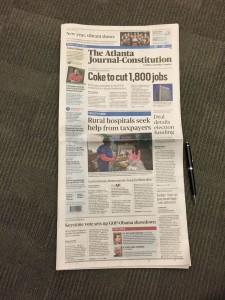 Check out the size of The Atlanta Journal-Consitiution newspaper. I placed my pen next to it to provide perspective. Click on the image for a bigger version.
Check out the size of The Atlanta Journal-Consitiution newspaper. I placed my pen next to it to provide perspective. Click on the image for a bigger version.